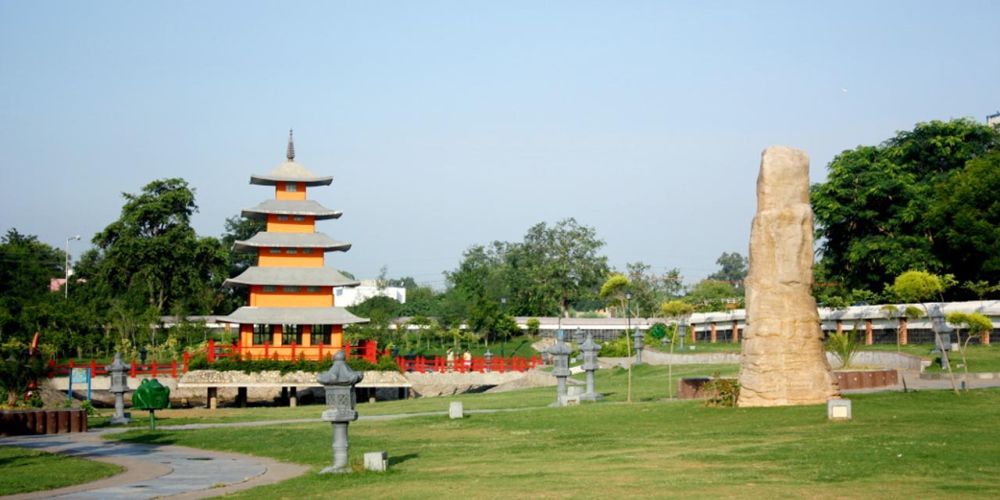

The Japanese Garden in Chandigarh is a relatively recent addition to the city’s green spaces, having been inaugurated in November 2014. Despite its recent inception, the garden has quickly become one of the most popular tourist destinations in the city. Chandigarh, known for its urban design and greenery, has been home to various tourist attractions for decades, and the Japanese Garden adds a unique international flavor to its portfolio.
Designed to symbolize the cultural exchange and friendship between India and Japan, the garden has been attracting tourists who are not only from the vicinity but from around the globe. Prior to the opening of the Japanese Garden, Chandigarh's tourism was primarily concentrated on architecture, with numerous structures designed by the famous Le Corbusier. The addition of the Japanese Garden added a new aesthetic dimension to the city's touristic offerings, enhancing its overall appeal.
The garden features traditional Japanese elements such as water bodies, pagoda towers, waterfalls, a meditation center, a Buddha idol, and Japanese huts that blend harmoniously into the landscape. Spread over an area of 13 acres across two phases, it creates a serene and scenic environment that offers visitors a taste of Japanese culture and landscaping traditions.
With the rise of social media and eco-tourism, gardens and natural spaces have seen an increase in popularity among tourists seeking picturesque and tranquil settings. The Japanese Garden is no exception and has become a favored spot for photography, family outings, and relaxation amidst nature.
Cultural Events and Workshops: A trend that has been rising in recent years is engaging tourists with cultural experiences. The Japanese Garden hosts festivals and activities such as Japanese tea ceremonies, origami workshops, and bonsai exhibitions to educate and entertain their visitors.
Wellness and Meditation Tours: As health and well-being become more central to people's lives, gardens like these are seeing a surge in visitors interested in meditation, yoga, and peaceful walks. The Japanese Garden, with its meditation center and tranquil settings, caters to this growing need for spiritual and mental well-being.